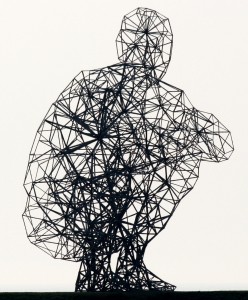The vicious circle of politics and economy
 Historically, politics and economy were one topic. Only recently they are being studied separately. Politics and economics have integral relations and it would not be plausible to assume the existence of one without another.
Historically, politics and economy were one topic. Only recently they are being studied separately. Politics and economics have integral relations and it would not be plausible to assume the existence of one without another.
Economic dimensions have impact on market and economic reforms, economic performance and system influence the benefits, cots and risk of doing business in a country.
Size of economy, resources available, geographic location, infrastructures, market competitiveness and people basically determine whether a country is suitable for producing or selling a product.
The size of an economy, determined through instruments such as GNI and GDP, is a basic measure of the market potential for a firm’s product.
The availability of natural resources, climatic condition, topography, geographical location of a country affect the level and patterns of market demand and production. The other factor affecting the production and market is the population size. However, the socio-economic factors linked to the population have greater influence on how market grows.
Infrastructure such as transport, energy, communication and institutions facilitating business are also essential for market growth. Financial and legal systems may be regarded as part of the commercial infrastructure of an economy.
Besides these factors, competitiveness of a firm is important to prosper in the marketplace despite the actions of its rivals. The firm must be able to beat the internal and external forces challenging its distinctive characteristics in the market.
Developing countries seem to offer economic opportunities for business but these opportunities come with many macroeconomic risks. Policy uncertainty and macroeconomic instability can be major obstacles towards these opportunities. Fluctuating economic activities, inflation, unemployment and balance of payments affects the business growth.
To create conducive environment for business activities to grow, governments come up with fiscal and monetary policies to curb the negative factors. Ultimately, the politics determine the kind of government and the existing government determine the kind of economic policies a country has.
Economic growth leads to economic development, which encompasses human and social development issues in addition to material economic issues. The increasing GDP does not necessarily tell the story of economic development but the social-economic indicators obviously.
One common measure of economic development is a country’s gross national income per head of population (GNI per capita) and purchasing power parity (PPP) is an adjustment in gross national income per capita to reflect differences in the cost of living. However, both these measures provide only a static picture of development.
Gross National Happiness (GNH), originated in Bhutan, is another economic development paradigm that has come to the debate tables. Against material prosperity incorporated by GDP, GNH focuses more on mental, physical and spiritual well being of individual as measure of development.
Economic system in a country influences economic development. Most countries today have mixed economic – neither market nor command economies. But the relation between economic development and economic system has been a subject of vigorous debate among academics and policy makers for years.
And their relation with the politics is integral and constitutive.